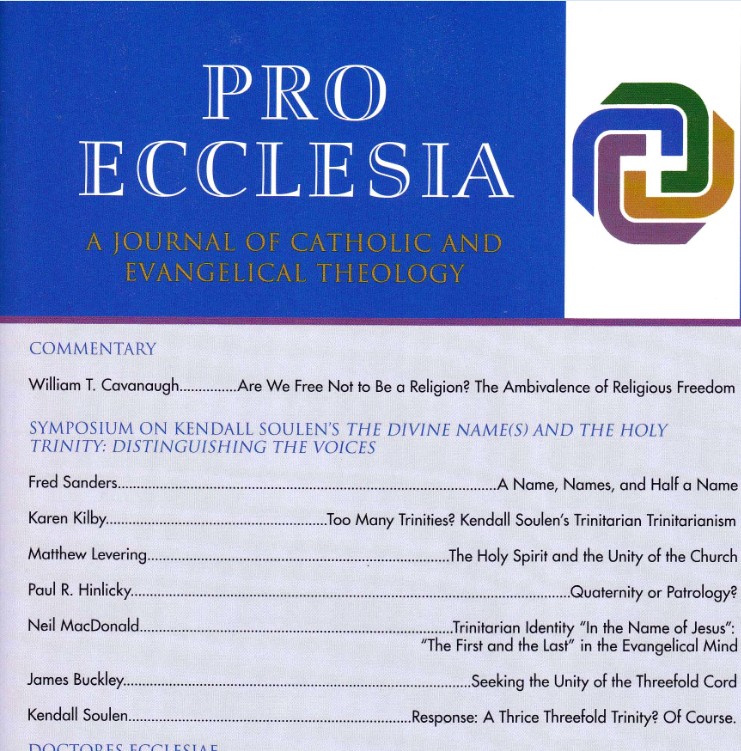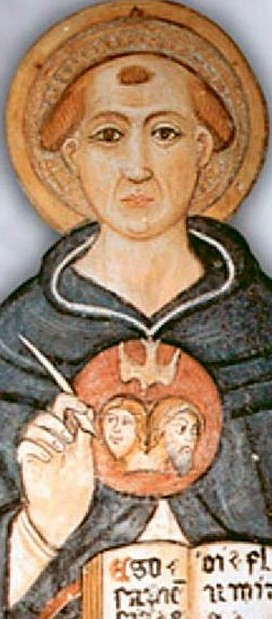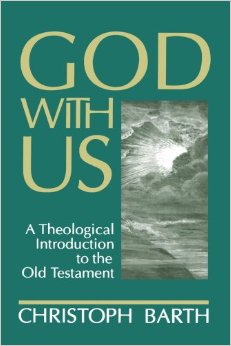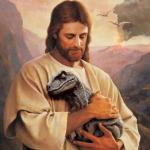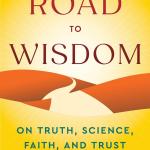We had a blast talking through Tom McCall’s Forsaken a few months ago and thought we’d do the same with Stephen Holmes’ recent book on the Trinity, published in the US as The Quest for the Trinity: The Doctrine of God in Scripture, History and Modernity (IVP Academic, 2012) and in the UK as The Holy Trinity: Understanding God’s Life (Paternoster, 2012). Thanks to IVP and Paternoster for review copies! (The book’s identical, by the way, just with different titles and covers.)
Senior Lecturer in Systematic Theology at the University of St. Andrews in Scotland, Holmes is a British Baptist who began his theological work in the mind of Jonathan Edwards. Like Edwards, Holmes makes no apologies for his particular theological and ecclesial commitments, holding to them with conviction. But also like Edwards, he can be unpredictable. He exhorts evangelicals to listen to the church in the reading of Scripture, but such listening hardly suggests docility. With Alasdair MacIntyre, Holmes finds tradition to be “an argument extended through time”–an argument in which we do well to speak up.
In this post, we frame Holmes’ project in The Quest for the Trinity.
Jenson: The UK version of the book has it in Paternoster’s series of “Christian Doctrines in Historical Perspective.” The advantage to such a series lies in its ability to lay bare the assumptions and discussions behind current formulations of a doctrine. Often enough, one can detect a bogey in the vicinity without being able precisely to locate it. The series promises to offer a historical account of the contexts, contests and convergences that have led to the current state of a given doctrine.
This is especially important with regard to the doctrine of the Trinity. One of the central claims in contemporary reports of trinitarian theology is that the doctrine itself fell into some combination of neglect and disrepute in the last few centuries, only to rise like a phoenix from the ashes in the 20th century. (No, that is not an overblown account of the rhetoric.) Karl Barth first signaled the dawn in his majestic account of the God who is none other than the one he is revealed to be in Christ. The trinitarian revival was driven in large part by this concern for revelation. To give priority to God’s unity (as had been standard since the Middle Ages) threatened to obscure his triunity, and it called into question the reliability and reality of God’s self-revelation in Christ. So Karl Rahner insisted that the economic Trinity is the immanent Trinity, and vice versa. If one is the other, one certainly reveals the other. Added to this, in Holmes’ account, is the irreducible relationality of the Trinity in John Zizioulas’ Being as Communion, which regarded the person (for Zizioulas, the Father) as the basic ontological unit (to put it roughly).
From here, Holmes identifies three patterns–the historicizing of the Trinity, an extension of the life of the Trinity into the life of the church and recent analytic theological proposals regarding the Trinity. In a sense, it’s funny to begin a historical narrative with the last chapter. But in so doing, Holmes establishes the context and offers his own account of the recent history of the Trinity. Is this a good place for him to have started, Fred?
Sanders: It’s the perfect place for Holmes to have started, even though it requires him to double back and do the biblical and patristic material in later chapters. Holmes has to start with recent discussions because his book is, I think, primarily an intervention in the current conversation. And I do mean intervention, as in the kind of uncomfortable meeting where somebody with a substance abuse problem finds themselves suddenly confronted by a group of friends who sit them down and say “you can’t go on like this.” Modern trinitarian theology, Holmes is insisting, can’t go on like this.
Modern trinitarian theology has been all abuzz for decades –fifty years maybe?– about how everything is radically different now and we have revived and renewed and reimagined and reoriented the whole mass of trinitarianism. There’s a vast and self-congratulatory literature on the subject. A lot of that literature is in fact very exciting to read. I think of Moltmann’s Trinity and the Kingdom, the book that first lit a fire for me to start researching the doctrine of the Trinity, or LaCugna’s God For Us, which brought together so many different ways of arguing, or Robert Jenson’s whole Systematic Theology, which I would call drastically trinitarian in its intentional revisionism. Colin Gunton is another name that stands out as a major proponent of a renewed passion for trinitarian theology that required significant revision of what had gone before.
Holmes admits to having been under the influence of that mighty movement of “the new trinitarianism” of the late twentieth century, but he has turned a corner and now claims that “the explosion of theological work claiming to recapture the doctrine of the Trinity that we have witnessed in recent decades in fact misunderstands and distorts the traditional doctrine so badly that it is unrecognizable.” I think he’s sympathetic, fair, and even-handed in his criticisms of particular authors throughout this book. But he also ends up telling what he admits is “a catastrophic story of loss,” which is the exact opposite of the conventional wisdom about this avalanche of Trinity books.
So Holmes leads with that claim, sketches the three themes you mention, and then turns back to examine the older tradition from which we have recently departed. He has to work this way because part of his thesis is a purely historical observation: that “the twentieth century renewal of Trinitarian theology” depends “in large part on concepts and ideas that cannot be found in patristic, medieval, or Reformation accounts of the doctrine of the Trinity.” In fact, some of the modern concepts were “explicitly and energetically repudiated as erroneous” by the earlier consensus. For all Holmes the historian knows, maybe the moderns are right and the ancients wrong. “But if so,” he warns, “we need to conclude that the majority of the Christian tradition has been wrong in what it has claimed about the eternal life of God.”
Jenson: While this would be a wild conclusion, we cannot dismiss its possibility out of hand. Perhaps this is the good Baptist in Holmes–ready to listen to the past, but better able to hear its discord and even a certain tone deafness on certain matters. Consider, for instance, his judgments regarding patristic attempts to find the Trinity in the Old Testament.
“Is it biblical?” remains the single most significant criteriological question for Christian doctrine (with apologies to Billy Abraham). But then another question butts in: “What counts as ‘biblical’?” After all, Athanasius got himself in trouble in part for defending a word (homoousios) that wasn’t in the Bible but was nevertheless required by the Bible. To deny that non-biblical word was to forsake the Scriptures. Clearly, a ‘biblical’ account of a doctrine requires more than a Bible-only vocabulary. What is required is an obedient following after the teaching of Scripture that honors the whole and all its parts. Doctrine is biblical when it plays this harmonizing role–keeping in mind how intricate and polyphonous harmony can be.
Holmes begins his historical survey with the recognition of the need to discern the biblical origins of the doctrine of the Trinity, and immediately there is a problem: “The history of the early development of the doctrine of the Trinity is largely a history of biblical exegesis, but exegesis of a kind that is unconvincing, obscure, or seemingly arbitrary to the modern reader.” Despite the recovery of a theological interpretation of Scripture in recent years, the Fathers’ ways of reading Scripture (and not just the Fathers’) seem foreign at best, arbitrary at worst. Holmes is not optimistic about the church’s exegetical methods when it comes to the doctrine of the Trinity. At an essential moment in the development of trinitarian doctrine, he catches Basil of Caesarea reading an Old Testament text “out of context (when judged by modern standards), and astonishingly woodenly, as a support for crucial technical theological positions.” I think Holmes aligns himself with those moderns who blanch at texts ripped out of context. And so far, so good. But, while ripping a prooftext out of its immediate context is clearly an exegetical failure, one should not assume that prioritizing a broader (say, canonical) context over an immediate context is utterly without warrant.
I wonder whether certain patristic exegetical errors don’t flow from a failure to show the tacit assumptions that guide them into their conclusions. Any blunt exclamation of “Look, the Trinity!” is bound to elicit exegetical demurrals. It’s not that easy, we insist. But for people who have learned to hear the voice of the Spirit of Christ in the Scriptures, who hold to the dominically-given conviction that the Hebrew Scriptures bear witness about Christ (John 5:39) and who find in the Scriptures an unmatchable means of triune grace–well, I would think such readers of Scripture have a sense of the whole that allows them to see the Trinity all over the Bible. In this sense, prooftexts (an easy and still often appropriate target for critique) might serve as shorthand for a rather sophisticated hermeneutic.
Still, despite a dour disposition to the patristic exegesis, Holmes takes time (if too little) to sketch certain key exegetical assumptions and moves the Fathers make, treating briefly Proverbs 8 and Wisdom 7, Isaiah 53 and two Psalms. Even if we find a given method unconvincing or illegitimate, Holmes hopes to demonstrate that such readings weren’t arbitrary but had an inner logic governed by a commitment to “the primary meaning of the biblical text as Christological”. Perhaps this is a case of right doctrine, wrong text (or at least wrong use of text). Furthermore, exegetical idiosyncrasy, even exegetical error, needn’t imply that the doctrine is unbiblical. “Put another way, are there convincing exegetical arguments for the doctrine of the Trinity, even if they were unknown to the Fathers?”
Well, are there? So much for what the Fathers found about the Trinity in Scripture, Fred–what does Holmes find? Does he offer, or at least hint at, more convincing exegetical arguments for the Trinity? And what do you think? Haven’t you written something somewhere about the Trinity and the Bible?
Sanders: I wish there were more to say about Holmes’ own view of how to discern the doctrine of the Trinity in Scripture. Because of the way he frames the whole book project, though, he doesn’t make much of a contribution to that task of deriving the doctrine of the Trinity from the Bible. Holmes is no shrinking violet, so it’s not as if he’s got strong views that he’s afraid to put in print. But the main thrust of this book is that the consensus of the recent trinitarian revival is at variance with the content of the classic doctrine, so he really doesn’t have any remit to get exegetical in his own right. In his already-classic, already-widely-quoted final paragraphs, Holmes laments that in the modern revival, “we returned to the Scriptures, but we chose (with Tertullian’s Praxeas, Noetus of Smyrna, and Samuel Clarke) to focus exclusively on the New Testament texts, instead of listening to the whole of Scripture with Tertullian, Hippolytus, and Daniel Waterland.” In his comments on each of those figures, readers can glean a little bit of Holmes’ own judgments on matters hermeneutical. But those judgments are only markers along the way to his main point about the chasm between old-school trinitarianism and new-school.
But Matt, since we’re trying to think along with Holmes rather than just about him, I do think he’s picked up on something very important for ongoing work in this area. The church fathers worked out the doctrine of the Trinity using a lot of Old Testament texts. They had the same conviction that B. B. Warfield has described about the Old Testament: that it’s “a chamber richly furnished but dimly lit.” In other words, there’s plenty of trinitarian furniture in there, but the lights aren’t on until the new covenant arrives. We may not be able to endorse the details of patristic exegetical moves, but it seems to me we’ve got to get into a position to make the same overall move they made: to leverage New Testament revelation in our reading of the Old Testament. I’m all for giving a strategic priority to the New Testament (since that’s where the lights come on with regard to the revelation of the Son and Spirit as distinct persons), but it won’t do to set aside the Old Testament altogether. Or at least if we do so –Holmes’ main point– we’ll be constructing a trinitarian theology that is not the same as what the church believed before modernity.







